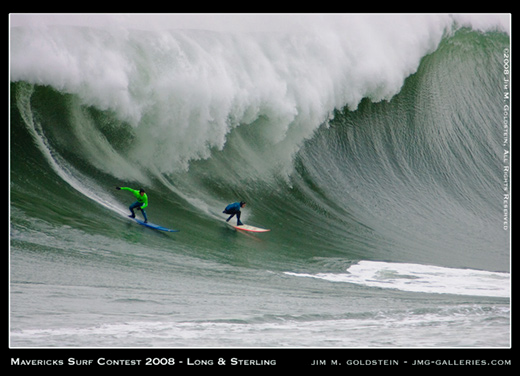This week I rode my mountain bike on a great trail overlooking the Pacific Ocean between Santa Cruz and Half Moon Bay. After my ride, I ventured down to the beach to see the surfers catch the giant waves that hit the California coast during the winter months. Just north of Half Moon Bay, is Mavericks, home of a famous winter surf competition. The waves are huge because of a reef one mile off shore.

As I was watching the surfers in these giant waves, I remember one of my surfer friends that shared some surfing wisdom with me years ago. He said, “when you’re out in the surf, you have to watch out for that rogue or unexpected wave. That wave is the one that will knock you out. I’m always looking over shoulder for the expected.”
If you are mortgage banker or broker that survived the last several years, you’re probably feeling pretty good after 2009. Last year will stand out as one of the better profit years for many mortgage banking participants. However, your survival has its threats. You may have a few “unexpected waves” still coming that might knock you around or even down.
Let me explain.
If you originated and sold Subprime, Alt A and stated income loans, many of these loans are performing poorly and many have gone into foreclosure. As this occured and continues to occur, investors are attempting to mitigate their losses by making mortgage bankers and brokers either buy back loans or make them whole from losses.
Earnings from 2009 and subsequent increases in net worth make many mortgage bankers and some mortgage brokers a target by investors to squeeze them for money. Almost all agreements have clauses requiring mortgage bankers and brokers to pony up money when there is loan fraud, credit and/or production violation. The “rogue or unexpected wave” is the trailing risk of repurchase loan request or make-whole demands from investors.
My friend said you need to be looking over your shoulder all the time while surfing in large waves. He was always prepared for that one “rogue or unexpected wave”. We too need to be prepared that we probably have some trailing risk of repurchases if we originated Subprime, Alt A or state income loans.
Digging into your closed loan data to determine your trailing risk is a first step. The second step is to set aside some reserves from your 2009 winnings to take care of potential investor demands.







